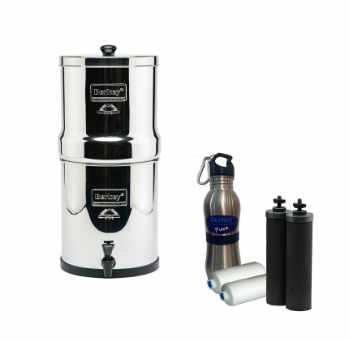A devoutly religious sidewalk counselor will soon ask the U.S. Supreme Court to restore her ability to offer compassionate support to women considering abortion.
In Vitagliano v. County of Westchester, a federal appeals court held that sidewalk counselor Debra Vitagliano could ask the high court to reconsider its heavily criticized decision in Hill v. Colorado (2000), which allowed states and local governments to ban peaceful sidewalk counseling outside abortion clinics.
With the help of Becket, a nonprofit religious rights law firm, Vitagliano—who is challenging a recently enacted law in Westchester County, New York, that is modeled on the law upheld in Hill—will soon ask the Supreme Court to reconsider its decision.
Motivated by her Catholic faith and experience as an occupational therapist for children with disabilities, Vitagliano believes she has been called to offer sympathetic, face-to-face support to women considering abortion. But Westchester County’s recently passed law restricts discussions about abortion, its alternatives, and resources available to women in need.
 The law established a 100-foot zone around abortion facilities—including public sidewalks—and prevents anyone from approaching within eight feet of another person in that zone unless given explicit consent.
The law established a 100-foot zone around abortion facilities—including public sidewalks—and prevents anyone from approaching within eight feet of another person in that zone unless given explicit consent.
Under the law, if Vitagliano approaches a woman to tell her that there are alternatives to abortion even on a public sidewalk, she can be arrested and criminally punished.
“My faith calls me to offer help to pregnant women considering abortion. In her most vulnerable state, a woman considering an abortion needs to know that she is loved and that there are other options for her and her child,” Vitagliano said in a press release. “I am hopeful that the Supreme Court will hear my plea and allow me to help these women.”
The county’s law is closely modeled on the Colorado law that the Supreme Court upheld in Hill. But legal scholars and judges have severely criticized Hill, and in 2022 five justices of the Supreme Court stated that Hill “distorted First Amendment doctrines.”
Becket argues this case presents an ideal opportunity for the high court to right Hill‘s wrong and protect all those who want to counsel women considering abortion. The New York City-based Second Circuit Court of Appeals ruled that Vitagliano suffered harm from the County’s law, giving her the right to “pursue {Notes:her} appeal in the hope that the Supreme Court will revisit and overrule Hill.”
The federal appeals court even recognized that Hill “appears to rest on reasons rejected in some other line of decisions.”
In the Second Circuit’s 27-page order, it notes that “Vitagliano contends that the County’s bubble zone law is a content-based restriction on speech that cannot survive strict or intermediate scrutiny.” The court also concluded, “Vitagliano has standing to seek preenforcement relief because she has pleaded sufficient facts to support a credible threat that Westchester County will enforce the bubble zone law if she pursues her stated intention to engage in sidewalk counseling.”
“Americans like Debra have every right to engage in peaceful, face-to-face conversations with women in need on public sidewalks,” said Beckett President and CEO Mark Rienzi. “Nobody should have to risk jail time and go to court for a peaceful conversation on public sidewalks—even when local government disagrees with them. We are hopeful that the Court will take this case and protect Debra’s ability to serve women in need.”
According to Becket, Vitagliano will ask the Supreme Court to protect her ministry as early as next month.
***Please sign up for CBN Newsletters and download the CBN News app to ensure you keep receiving the latest news from a distinctly Christian perspective.***
The remainder of this article is available in its entirety at CBN

